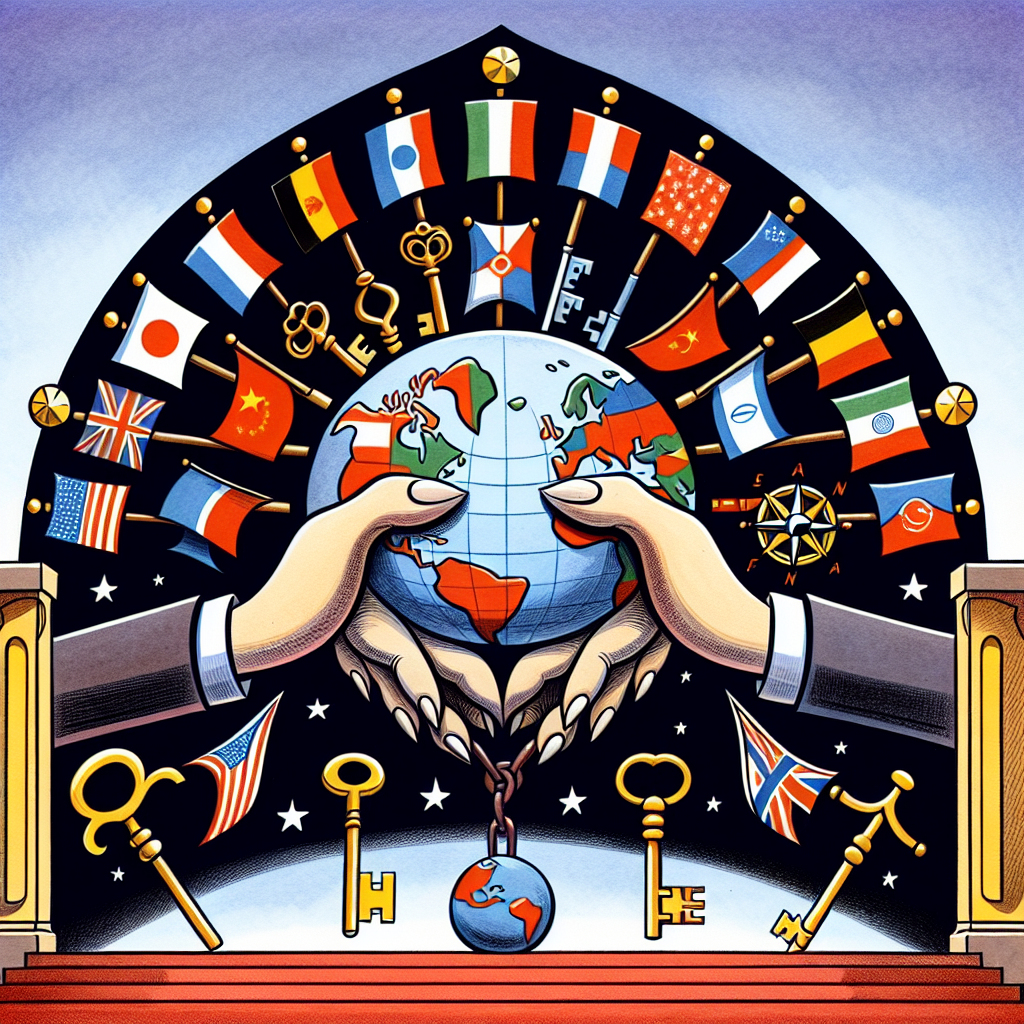Foreign Policy Reaffirmed by President Ramaphosa: Emphasis on Non-Alignment, Peace, and Economic Growth
In his address, President Ramaphosa stressed that South Africa’s policy of active non-alignment allows it to engage constructively without favoring any global power bloc.

- Country:
- South Africa
On August 20, 2023, ahead of the BRICS Summit chaired by South Africa, President Cyril Ramaphosa addressed the nation, highlighting the principles guiding South Africa’s foreign policy. Speaking with conviction, he underscored the nation's adherence to non-alignment and peaceful international relations rooted in values of equality, human rights, and global development.
Reflecting on South Africa's history, President Ramaphosa contrasted the democratic nation’s approach with the apartheid state, which, before 1994, was characterized by "coercion, destabilisation, and military aggression" on the international stage. South Africa's current foreign policy, he emphasized, aligns with the principles enshrined in the 1955 Freedom Charter, advocating for independence, mutual respect, and peaceful negotiation as solutions to international conflicts.
In his address, President Ramaphosa stressed that South Africa’s policy of active non-alignment allows it to engage constructively without favoring any global power bloc. This approach, which resists pressure to take sides amid growing geopolitical tensions, stems from the historical lesson of the Cold War era, during which African nations’ alignments often led to destabilization and erosion of sovereignty. “We will not be drawn into a contest between global powers,” he stated, reinforcing that South Africa’s focus remains on fostering partnerships, pursuing global peace, and advancing development for all.
In line with this stance, the President emphasized South Africa's balanced diplomatic engagement with both Russia and Ukraine. He affirmed the importance of the United Nations Charter and advocated for peaceful dialogue, while preserving the nation’s historical ties with Russia and its positive diplomatic relationship with Ukraine. Recently, South Africa’s commitment to nurturing this relationship took a significant step forward as International Relations Minister Ronald Lamola prepared to sign a Visa Waiver Agreement with Ukrainian Minister Andrii Sybiha. The agreement, which facilitates travel for officials holding diplomatic or service passports, is designed to support peace dialogues by removing logistical barriers.
Looking forward, South Africa’s international partnerships will also feature prominently in 2025 when it assumes the G20 presidency and hosts the South Africa-European Union summit. As the EU’s only bilateral strategic partner in Africa, South Africa will use this summit to enhance trade, political dialogue, and investment cooperation, reaffirming the EU’s recognition of South Africa’s strategic importance on the continent.
President Ramaphosa further highlighted South Africa’s intention to deepen trade and political ties with major global economies, including China, the United States, Germany, Japan, and India. This broad engagement strategy aligns with the nation’s commitment to promoting intra-African trade and advancing the African Continental Free Trade Area (AfCFTA), which promises to remove trade barriers, spur industrialization, and bolster economic growth across the continent.
As his administration navigates the evolving global landscape, President Ramaphosa remains steadfast in advocating for solidarity with oppressed communities worldwide, particularly in Palestine and Western Sahara. By championing a foreign policy built on solidarity, peace, and sustainable development, he reinforces South Africa’s role as an advocate for human rights and a balanced international order.
With an unyielding commitment to its sovereignty, South Africa will continue to shape its foreign policy in line with its national interests and the principles it has long espoused—solidarity, peaceful resolution of conflicts, and partnership-driven economic development. President Ramaphosa’s leadership of the 7th Administration, as he conveyed, is dedicated to fostering a world marked by equality and cooperation, advancing South Africa's influence in building a better, fairer global society.
- READ MORE ON:
- Cyril Ramaphosa
- BRICS Summit










